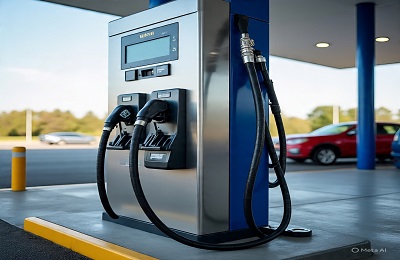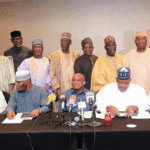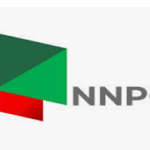LAGOS, Nigeria – Petrol prices have increased at Nigerian fuel depots as Middle East conflicts drive up crude oil costs and tanker drivers strike over Lagos port fees.
Dangote Refinery raised petrol prices from N825 to N840 per liter. Rainoil hit N900 per liter. NIPCO reached N895 per liter. The increases follow Middle East tensions and truck driver protests over the N12,500 E-Call Up fee in Lagos.
Depot Operators Warn of Fuel Shortages
A depot operator said Nigeria could face fuel scarcity if the government doesn’t resolve the E-Call Up fee dispute.
“The issue of price is secondary at the moment, as there was no fuel loading on Monday,” the operator said. “Unless the government settles the crisis arising from the E-Call Up system, Nigeria might witness another fuel scarcity soon.”
Truck drivers must pay N12,500 before entering Lagos ports. Drivers refuse to pay this fee, causing loading delays at fuel depots.
PENGASSAN Criticizes Marketers Over High Prices
The Petroleum and Natural Gas Senior Staff Association of Nigeria (PENGASSAN) accused fuel marketers of maintaining high prices despite lower crude oil costs.
President Festus Osifo said crude oil prices between $62 and $65 should result in lower petrol prices. “Today, with crude hovering between $62 and $65, there has been no commensurate reduction in the pump price,” Osifo said in Abuja.
Nigeria Fuel Prices Should Be N700-N750
Osifo said petrol prices should range between N700 and N750 per liter based on current crude oil prices. He wants the Nigerian Midstream and Downstream Petroleum Regulatory Authority (NMDPRA) to publish pricing templates to prevent arbitrary pricing.
Nigeria Refinery Problems Are Political
Osifo criticized frequent shutdowns of Nigerian refineries, calling them politically motivated rather than technical failures. He mentioned the Port Harcourt refinery’s recent closure as operational mismanagement.
“The level of efficiency of those refineries is not optimal,” Osifo said. “We are calling on the government and the handlers of the refineries to look at the operational model and yield to the time-tested call for a revamp.”
Security Issues Affect Oil Investment
Osifo warned that insecurity in oil-producing regions drives away international investors. Oil companies face attacks on facilities in the Niger Delta region, increasing costs and reducing production.
Security problems affect petrol prices and fuel availability despite government incentives for multinational oil companies.
Middle East Conflict Raises Oil Costs
Middle East tensions have pushed global crude oil prices higher. Nigeria imports refined petroleum products, making the country vulnerable to international price changes.
Higher crude oil costs directly affect petrol prices at Nigerian depots and stations. Nigeria’s limited refining capacity means most fuel comes from international markets.
Lagos Port Fees Disrupt Distribution
The N12,500 E-Call Up fee at Lagos ports creates obstacles for fuel distribution. Tanker drivers must pay before accessing port facilities to load petroleum products.
Driver unions rejected the fee, leading to work stoppages and reduced fuel loading. The protest affects fuel supply chains across Nigeria, especially regions depending on Lagos port deliveries.
Higher crude oil prices and distribution problems threaten Nigeria’s fuel supply. Government intervention may be needed to resolve the E-Call Up fee dispute and prevent fuel shortages.
Petrol prices will likely remain high until Middle East tensions ease and the Lagos port dispute ends.
By Abdullah Korede








